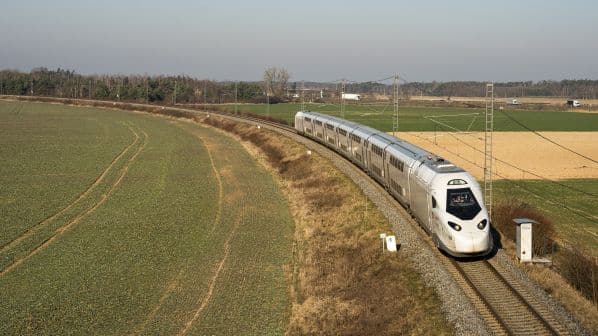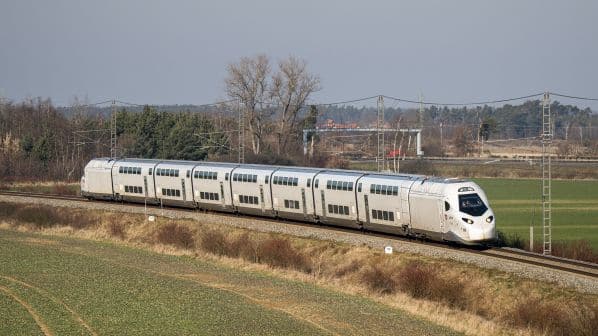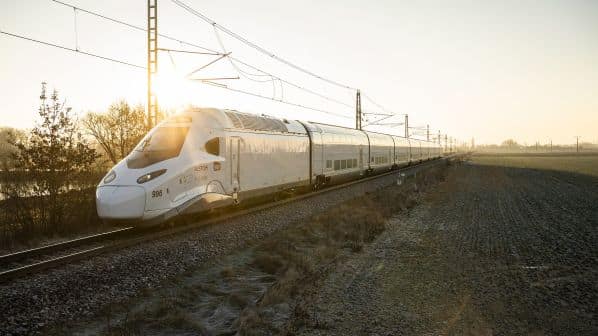THE first TGV M, dubbed the “TGV of the future,” has begun pre-validation tests at the Velim test centre in the Czech Republic.
The tests are being carried out with support from the Railway Testing Agency (AEF) of French National Railways (SNCF) and the Rolling Stock Engineering Department at operator SNCF Passenger. The six-month test programme began on December 7, and is part of a series of tests which includes:
- static and quasi-static testing
- the pre-validation testing, which is now underway
- acceptance testing, and
- endurance testing.
Alstom built the first train at its plant in La Rochelle and on arrival at Velim, the TGV M began a gradual increase in speed to operate at up to 200km/h, which was successfully achieved in less than a week, sooner than expected. The first phases of functional development tests then began, including braking with and without load, along with pantograph and signalling tests. This aims to ensure compliance with the safety requirements and to submit the Request for Authorisation to Run a Test Train on the French National Railway Network (RARTT).

The test campaign also allows SNCF Passenger drivers to become familiar with the train. The driver’s cab was carefully designed with the support of SNCF drivers to ensure that it meets their needs in terms of comfort, space and ergonomics.
Another power car is due to begin tests in a climatic chamber at the Rail Tec Arsenal facility in Vienna, Austria, in March. The tests will be conducted between -20°C and +40°C. The programme includes simulation of sunshine up to 800W/m², and wind at up to 160km/h.
Heating, air-conditioning, and insulation, in the driver's cab as well as the passenger cars, will also be tested. These features should actively contribute to the 20% reduction in energy consumption that the TGV M has been designed to deliver, SNCF says.

SNCF awarded Alstom a €2.7bn contract to supply 100 dual-voltage domestic high-speed trains in July 2018 and exercised a €590m option for another 15 four-voltage trains for international services in August 2022. The trains will be used for both Inoui and Ouigo high-speed TGV services.
The train is due to begin testing on the French national network at up to 320km/h in the spring, with the first trains scheduled to enter commercial service at the end of 2024.
An in-depth feature on Alstom's Avelia Horizon appeared in the November edition of IRJ.
For detailed data on fleet orders from around the world, subscribe to IRJ Pro.

